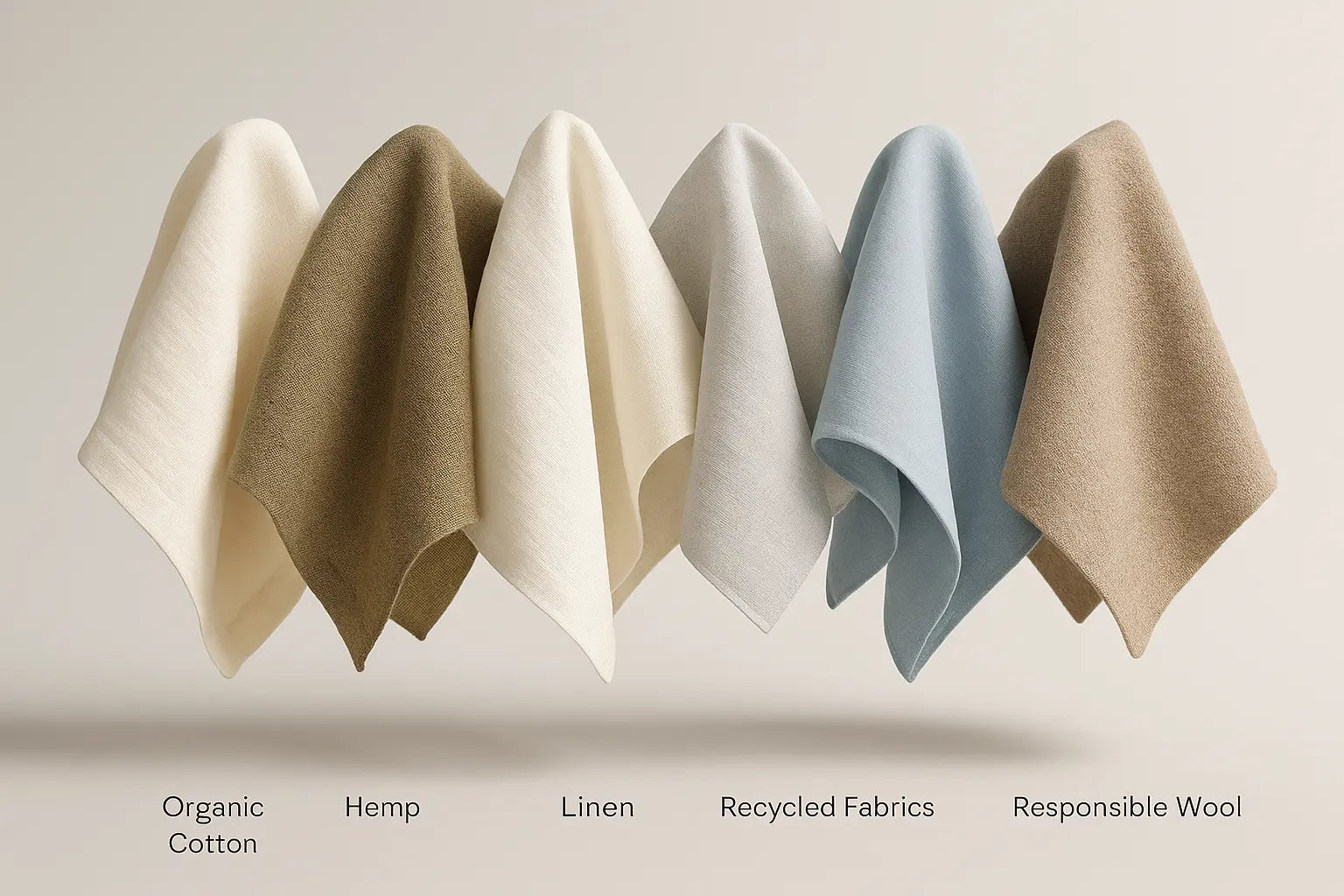Eco‑Friendly Fabrics: Which Materials Are Kinder to the Environment?
When it comes to fashion, the conversation is no longer just about style or comfort—it’s also about responsibility. The fabric you wear plays a big role in how much impact your clothing has on the planet. Some textiles require large amounts of water, chemicals, or energy to produce, while others are naturally more sustainable. So, which fabrics are truly eco-friendly and kinder to the environment? Let’s take a closer look.

🌱 Organic Cotton
Unlike conventional cotton, which uses heavy pesticides and requires enormous amounts of water, organic cotton is grown with natural methods and less chemical input. It is biodegradable, breathable, and a better choice for both farmers and ecosystems.
🍃 Hemp
Hemp is one of the most sustainable fabrics in the world. It grows quickly, requires very little water, and enriches the soil instead of depleting it. Hemp fibers are strong, durable, and naturally resistant to pests, making them an excellent alternative to synthetic fabrics.
🌾 Linen (Flax)
Made from the flax plant, linen is lightweight, breathable, and biodegradable. It thrives with minimal pesticides and water. While it wrinkles easily, many see that as part of its natural charm. Historically, linen has been a staple fabric for thousands of years—and for good reason.
♻️ Recycled Fabrics
Fabrics made from recycled materials, such as recycled polyester or nylon, help reduce waste by giving new life to old plastic bottles, fishing nets, and discarded textiles. While still synthetic, their carbon footprint is much lower compared to producing virgin polyester.
🌍 Tencel (Lyocell)
Derived from sustainably sourced wood pulp, Tencel (also known as Lyocell) is produced using closed-loop technology, where 99% of solvents and water are reused. The fabric is soft, breathable, and biodegradable—making it a favorite in eco-friendly fashion collections.

🐑 Responsible Wool
Wool is a natural and biodegradable fiber, but not all wool is sustainable. Choosing responsibly sourced wool (certified by RWS or similar standards) ensures that both animal welfare and land management are respected.
🚫 Fabrics to Avoid
- Conventional cotton – due to high water and pesticide use.
- Virgin polyester and nylon – made from fossil fuels, non-biodegradable.
- Acrylic – high energy consumption and microfiber pollution.
🌟 Choose Wisely, Wear Consciously
No fabric is perfect, but some are far better for the environment than others. By choosing organic cotton, hemp, linen, Tencel, recycled fabrics, or certified wool, you can reduce your ecological footprint while still enjoying quality and style.
👉 Next time you shop, ask yourself: “What story does this fabric tell about the planet?”
